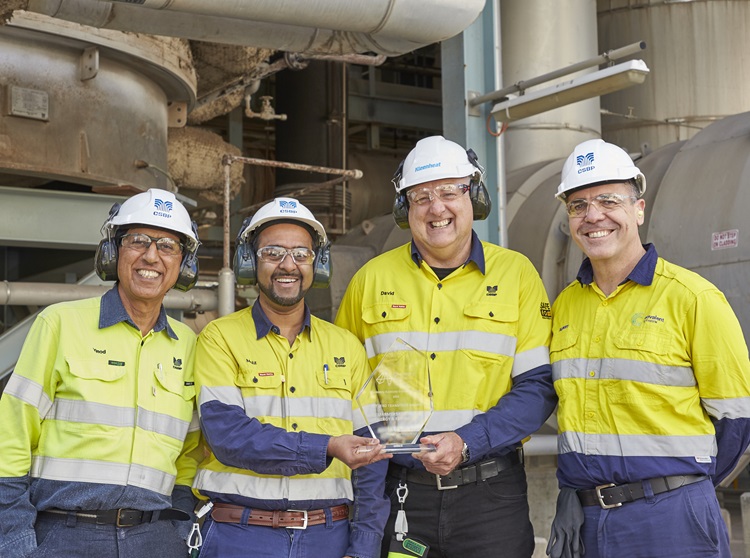
Net Zero transition award, Chemistry Australia

WesCEF won Chemistry Australia’s inaugural Net Zero Transition Award in April 2023. The award recognises the emission reductions WesCEF has achieved and its roadmap to net zero.
Chemistry Australia, the national body representing Australia’s $40 billion chemistry industry, recognised WesCEF’s commitment to its net zero by 2050 goal despite operating in a hard-to-abate sector.
When receiving the Award, WesCEF acknowledged its team members who had been working hard over the last decade to minimise the business’s carbon emissions and have more recently, begun working towards an interim target of 30 per cent reduction in Scope 1 and Scope 2 emissions by the 2030 financial year, relative to a 2020 financial year baseline (which incorporates the emission reductions already achieved).
WesCEF was an early adopter of a range of emissions reduction technologies, such as nitrous oxide abatement catalysts, which were installed in its nitric acid production plants from 2012. These reduced nitrous oxide emissions (which have a global warming potential 265 times higher than carbon dioxide) from the nitric acid plants by 80 per cent.
From 2012 to the end of 2020, this technology delivered a reduction in cumulative emissions of 5.5 million tonnes CO2 equivalent, or approximately 40 per cent of WesCEF’s total emissions.
WesCEF has implemented a range of other strategies that reduce operational greenhouse gas (Scope 1 and Scope 2) emissions, including capturing excess heat produced by its plants, to generate electricity. WesCEF also sells captured carbon dioxide for end use in the food and beverage, metals refining and water processing industries.
WesCEF has now entered the second phase of its decarbonisation journey, focused on its 2030 financial year interim target and is assessing further investments in nitrous oxide abatement and zero carbon electricity. At the same time, the groundwork is being done to prepare for the third phase of its journey post 2030, including investigating solutions for its carbon dioxide emissions.
Partnering with a diverse range of trusted and reputable organisations is seen as a critical enabler to this third phase, with partnerships established with Japanese conglomerate, Mitsui & Co., Ltd, APA Group and Jupiter Ionics. For example, the partnership with Mitsui aims to explore the feasibility of building a low carbon ammonia production plant that will include carbon capture and storage opportunities.
These partnerships are integral to achieving WesCEF’s 2050 target.